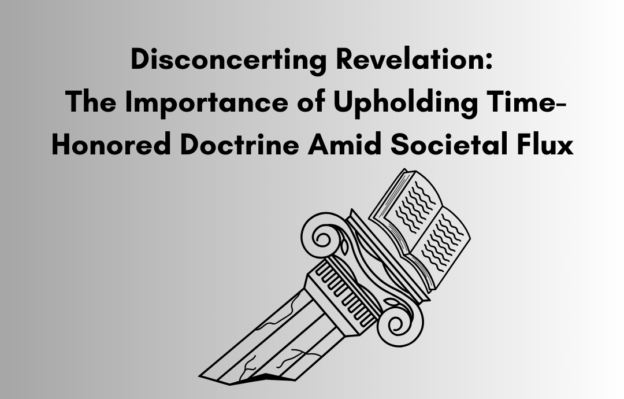Based on a survey reported by The Times, the article explores the growing inclination among some CofE clerics to align church doctrine with contemporary societal attitudes, particularly concerning sex, marriage, and gender roles. This piece provides a thorough review of the survey’s findings while advocating for the Catholic Church’s steadfast adherence to traditional teachings.
Introduction
The article “A Christian country?: The CofE shows us why not to cave to the spirit of the age” published in The Catholic Herald brings to light a crucial discussion regarding the shifting attitudes within the Church of England (CofE) and the potential implications for Christian identity in Britain. Based on a survey reported by The Times, the article explores the growing inclination among some CofE clerics to align church doctrine with contemporary societal attitudes, particularly concerning sex, marriage, and gender roles. This piece provides a thorough review of the survey’s findings while advocating for the Catholic Church’s steadfast adherence to traditional teachings.
Key Points:
1. The Role of Documented Evidence: The article effectively utilizes a well-documented survey from The Times to substantiate its claims about the evolving attitudes within the CofE. This reliance on concrete data enhances the article’s credibility and underscores the seriousness of the issue at hand. By grounding the discussion in real evidence, the article successfully highlights the potential shift away from traditional doctrine among some clergy members within the Church of England.
2. Concern for Societal Morality: The article raises legitimate concerns about the potential erosion of societal moral standards if religious institutions begin to conform too closely to contemporary societal trends. By pointing to the example of normalized shoplifting in the UK, the article illustrates how moral decay can become pervasive when societal norms are disconnected from long-standing ethical teachings. The argument is compelling and underscores the role of Christian doctrine in maintaining moral and social order.
3. Upholding Traditional Doctrine: A core strength of the article is its emphasis on the importance of upholding traditional doctrine, particularly within the Catholic Church. By contrasting the approaches of the CofE and the Catholic Church, the article effectively highlights the Catholic Church’s commitment to preserving its teachings despite external pressures. This distinction underscores a fundamental Catholic principle: the importance of not succumbing to societal whims but rather maintaining a steadfast commitment to established doctrine.
Areas for Improvement:
1. Overgeneralization: One notable weakness of the article is its potential overgeneralization of the survey results. While the survey provides valuable insights, extrapolating the attitudes of a subset of responding clerics to represent the entire CofE may lead to a skewed interpretation. The article could benefit from acknowledging the diversity of opinions within the CofE, thus providing a more balanced perspective.
2. Limited Perspective on Societal and Religious Interplay: The article would be stronger if it addressed the complex relationship between evolving societal norms and religious teachings in more depth. By simplifying the discussion around the adherence to traditional values, the article misses an opportunity to explore how religious institutions can engage with contemporary issues without compromising core principles. A more nuanced exploration of this dynamic could provide readers with a richer understanding of the challenges facing religious institutions today.
3. Comparative Analysis: While the article effectively contrasts the Catholic Church’s resilience with the perceived wavering of the CofE, it would benefit from a more detailed comparative analysis. By delving deeper into how different Christian denominations navigate societal changes, the article could offer a more comprehensive view of the broader religious landscape. This would not only enrich the discussion but also provide a more informed basis for the article’s conclusions.
4. Balancing Objectivity and Subjectivity: The article generally maintains an objective tone when discussing the survey’s findings but occasionally ventures into subjective territory, particularly when linking these findings to broader concerns about moral erosion. To strengthen the article’s argument, it would be beneficial to support these subjective claims with additional corroborative evidence. This would ensure that the article remains balanced and persuasive, even when addressing more contentious issues.
Conclusion:
From a traditional Catholic perspective, the article resonates strongly with the principle of preserving time-honored doctrinal teachings amid societal pressures. It rightly praises the Catholic Church for its refusal to conform to modern societal viewpoints, thereby positioning itself as a bastion of traditional Christian values and moral guidance. However, the article could be further improved by addressing the aforementioned areas for improvement, particularly in providing a broader perspective and a more nuanced discussion of the interplay between contemporary societal norms and religious teachings. By doing so, the article would offer a more well-rounded and informed analysis of the complex issues at hand.
